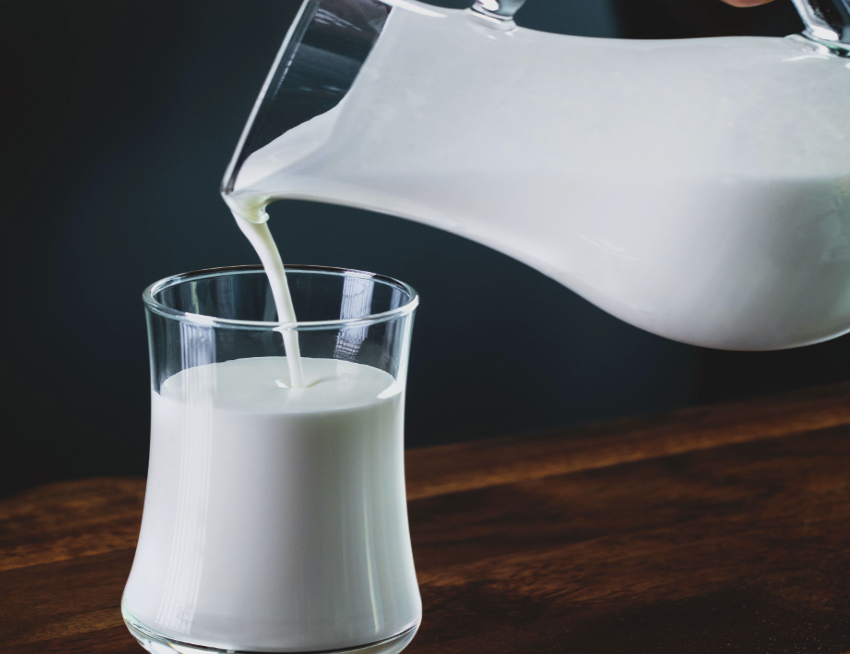
With the high rise of non-dairy alternatives filling up the supermarket aisle you would be more likely liable to think that dairy has slowly been collapsing in the industry.
From almond to coconut, soya, oat and rice milk, the demand for dairy alternatives has shifted from being solely available in health stores to the shelves of local supermarkets. According to market research, the global dairy alternatives market is expected to reach $26 billion this year.
But dairy has long been promoted as a superfood, particularly in the Western world. In fact, the nutrition guidelines in many countries list dairy products as an essential part of a healthy diet. At the same time, there are many countries where people eat few dairy products and yet remain healthy, notes Deutsche Welle (DW).
And then some claim consuming milk leads to illness, including diabetes and even cancer.
So what’s the deal with dairy? Mira Fricke, science editor at DW, takes a look at the latest scientific studies to set the record straight.
Mother’s milk
There’s no debate that mother’s milk, in humans or other mammals, is the number one source of nutrition. This milk is packed with vitamins and minerals, as well as fats and proteins, to help babies grow.
For babies, it’s clearly a superfood. However, after the first year of life most adults lose the ability to digest lactose (the sugar found in milk), says Fricke.
Around 65% of the world’s population is lactose intolerant during their adult years, leading to digestive issues such as bloating or diarrhoea, but there are strong regional differences.
For example, just 5% of Northern Europe’s population is lactose intolerant, while in some Asian and African countries, more than 90% of adults are unable to digest lactose.
There are genetic reasons for that, notes Fricke. It’s likely that the first farmers who settled in Europe developed the ability to digest lactose, especially in places where milk was essential to their survival, she says.“Resources were more limited, and people living in these European countries had to feed from resources that were there, and cattle was a good nutrition resource throughout the year,” says professor Christina Ellervik, a doctor at Harvard Medical School who researches the effects of dairy products on health.
Despite the digestive issues for some people, milk is still a good source of nutrients. Harvard Health notes that dairy products such as milk, yoghurt, cheese and cottage cheese are all good sources of calcium, which helps maintain bone density and reduces the risk of fractures.
Does dairy cause pimples?
Maybe. In several studies, researchers have found a link between dairy consumption and acne, particularly in teenagers.
“Milk actually increases another hormone, called the insulin-like growth factor, which promotes growth in general, but it could be involved in the growth of many things, [including] acne,” says Ellervik.
Multiple studies show that people who consume dairy products have a higher risk of acne, although it remains to be confirmed whether it is milk that causes it.
Does milk cause heart disease and diabetes?
The thought behind this theory is that the fat in dairy products damages blood vessels, leading to heart and circulatory illness.
But science suggests otherwise. Canadian scientist, professor Jean-Philippe Drouin-Chartier at Laval University, tells DW that researchers have found no difference in risk between people with high intakes of dairy compared to those with low intakes.
The latest research shows that dairy products do not cause heart disease or diabetes. Says Fricke: “On the contrary, several studies show that consuming milk can reduce the risk of diabetes.”
Finally, does milk increase your cancer risk?
A few studies, particularly on prostate cancer, have suggested a link between milk consumption and cancer risk.
However, there is no evidence yet that milk is actually the cause of this type of cancer, says DW. The same growth factor that may contribute to acne is seen as a possible reason for the link, but various studies have yet to confirm this, they add.
Asked whether dairy products should be avoided, Nobel prize winner professor Harald zur Hausen tells DW that he would be careful about saying that, as dairy products do play an important role in the human diet. “I would caution against any panic,” he says.
The bottom line: you can lead a healthy life with or without dairy – what’s important is what else you eat in addition to them.
Says Vasanti Malik, nutrition research scientist with the Harvard T.H. Chan School of Public Health: “… keep in mind that eating a well-balanced diet that includes plenty of green leafy vegetables and nuts can better help you get the calcium and protein you need rather than relying too much on dairy.”
Also see:Breakfast ideas that are delicious and packed with protein




